What is Forex Trading all about?

In this article
What is Forex trading? How does Forex trading work? Forex trading is the buying and selling of global trading currencies within the USD 5 trillion a day Forex market. If you think that sounds like a lot, you’d be correct – The Forex market is the global marketplace and the most liquid market in the world!
If you combine the world’s stock markets into 1, the daily volume won’t surpass the currency market volume.
This is achieved because the Forex market is globally decentralised, unlike stock markets requiring all trades to be executed through one central exchange like the New York Stock Exchange (NYSE). Regulated by the Financial Sector Conduct Authority (FSCA), Forex trading in South Africa is highly popular.
The foreign exchange market
A daily average turnover of more than $5 trillion is reported on the foreign exchange market, one of the most widely traded markets in the world. There is no central location or exchange for the forex market, which is open 24 hours a day from Sunday night through Friday night. Individuals, companies, and organisations continuously exchange currencies as they conduct global business and try to take advantage of rate fluctuations.
In addition to central and retail banks, corporations and individual traders also use the foreign exchange market. Fundamental analysis can help determine market trends by understanding how each player interacts with the FX market.
Central banks
A central bank manages the country’s currency, money supply, and interest rate. The main purpose of central banks’ actions is usually to stabilise the nation’s currency.
Retail Banks
The interbank market is where they trade large volumes of currency. In addition to exchanging two currencies between themselves, banks exchange currencies on behalf of their clients.
Corporations
To transfer funds for imports, exports, or services, companies dealing with overseas companies have to participate in the foreign exchange market.
Retail traders
The volume of forex transactions by retail investors is much lower than that of banks and organisations. The goal of retail traders is to profit from the fluctuations in the forex market by utilising both technical and fundamental analysis.
Spot Forex market
Due to its role as the largest underlying real asset for the forwards and futures market, forex trading has always been the largest in the spot market. Market volumes in forwards and futures were higher than in spot markets. However, electronic trading and the proliferation of forex brokers have boosted trading volumes on forex spot markets.
Spot market transactions involve purchasing and selling currencies at their trading prices. Supply and demand determine this price, which is calculated according to several factors, including current interest rates, economic performance, sentiment towards the ongoing political situation (both locally and internationally), and perceptions of how one currency will perform in the future. The term spot deal refers to a finalised deal. An agreement is made where one party delivers a specified amount of money to the counterparty at an agreed-upon exchange rate. It receives a specified amount of money in another currency. Settlement of a position is done in cash after it is closed. Despite the common misconception, that spot trades occur in the present (rather than in the future), these transactions are settled over two days.
Forward Forex market and futures markets
An OTC forward contracts are an agreement between two parties to buy a currency at a future date at a predetermined price. Contracts for future delivery of currencies are standard agreements between two parties to exchange currencies at a predetermined price and date in the future. There is no OTC trading for futures; they are traded on exchanges.
OTC forward markets are markets in which contracts are bought and sold between two parties, who decide the terms of their agreements. The Chicago Mercantile Exchange (CME) and other public commodities markets buy and sell futures contracts based on a standard size and settlement date.
What is leverage in foreign exchange trading?
In forex trading, leverage enables currency traders to control a larger exposure for a smaller amount of money. Forex brokers usually ‘borrow’ the difference between the trader’s margin requirement and the total trade value. A smaller deposit typically allows forex traders to control a larger amount of money than they can with other complex instruments.
Using forex spread betting or CFD trading account to trade FX is attractive due to the availability of leverage.
What is spread in Forex?
A forex spread differs between a currency pair’s buy and sell price. Traders regularly face ‘buy’ and ‘sell’ prices above and below the market price when trading forex pairs. A spread is the difference between the bid and asks prices or the buy-sell price.
Forex Currency Pairs
When you’re trading Forex, you must always trade currencies in pairs. Some examples of the most popular currency pairs are EUR/USD, GBP/USD and USD/JPY. By trading Forex markets in pairs, you buy one currency while selling another simultaneously. A base currency is the first currency listed in a currency pair, while the second currency is called the quote currency.
Not sure how to calculate the value of a Pip in Forex? Forex currency pairs can be grouped into three main types:
- Major Currencies: Any Forex currency pair that features the USD is considered a major currency pair. These markets are the most popular and, therefore, liquid Forex currency pairs of the 3.
- Minor Currency Pairs: Any Forex currency pair that doesn’t feature the USD is considered one of the minors. These markets are less predictable and are sometimes referred to as currency crosses.
- Exotic Currency Pairs Any Forex currency pair that features a currency from an emerging market economy. As South African Forex traders, it’s worth noting that any currency pair featuring the ZAR would be considered an exotic pair.
Forex market analysis
Let’s now take a look at how Forex traders analyse the market. The three types of market analysis within Forex trading are technical, fundamental, and sentiment analysis. Many South African Forex traders prefer to focus on learning technical analysis over others, but the best traders are those who can combine the 3. Take a more in-depth look at the three types of Forex market analysis below:
- Technical analysis: Market analysis involving price movements shown as patterns on your charts. The theory behind technical analysis is that humans are creatures of habit, and past price levels can predict where trading will likely occur.
- Fundamental analysis: Market analysis involving the current economic conditions of the economies behind the currency pairs involved. Long-term traders use this analysis to help determine their expected market direction.
- Sentiment analysis: Market analysis involving the overall positioning of other traders within the market. This form of analysis can be seen as a contrarian indicator used by traders to take trades in the opposite direction to the crowd.
Forex trading in both directions
One of the most significant advantages of trading Forex is that you can make money regardless of the market’s direction. If you think a currency will go up in value, you can buy it. Forex trading consists of currency pairs, so you can just as easily sell it and make money from the lower move. Learn how to calculate the margin on your Forex trades when buying or selling.
- Going long: When buying a market, you’re going long. Long positions move into profit as the price of the market goes up.
- Going short: When selling a market, you’re going short. Short positions move into profit as the price of the market goes down.
Let’s say that your fundamental analysis indicates the USD will continue to rally higher throughout the month. You will need to bring up a Forex currency pair featuring the USD to make money from your analysis.
You chose the US Dollar/Japanese yen because your technical analysis backed up your fundamental view that the USD would likely continue appreciating. If you went long (buy) USD/JPY as the price bounced off support at a support level on the chart, your trade would have been profitable.
Forex trading hours in South Africa
Forex markets trade according to South African time:
Frankfurt – 8 AM through 4 PM
London – 9 AM through 5 PM
New York – 2 PM through 10 PM
Sydney – 12 AM through 8 AM
Tokyo – 1 AM through 9 AM
You can see that forex trading occurs continuously (24/5) between Monday and Friday at each of these forex market centres. It is the best time to trade Forex when major forex market centres overlap, such as New York and London. The highest liquidity and volatility can be found at that time. There is always a market for buyers and sellers in the forex market. The company is fully capitalised, and its daily trading volume is tremendous.
How to Start Forex Trading in South Africa
South Africa is the major regional hub for Forex trading. As a result of unique local conditions, choosing a South African Forex broker regulated by the Financial Services Conduct Authority (FSCA) should be a key consideration for those wanting to start Forex trading. Choosing to trade with a regulated South African Forex broker should be a key consideration when you’re ready to start trading Forex.
Regulated Forex brokers offer new traders the ability to learn to trade Forex on a demo account, only going live when you feel ready. While South Africans can open trading accounts with most offshore Forex brokers, we recommend sticking with an FSCA-regulated broker for added peace of mind. Not sure how to start Forex trading?
How to trade the FX market?
The forex market offers various ways to trade currencies based on the previously mentioned principle of buying and selling simultaneously. You may wish to ‘go long (buy) an FX currency pair if you believe the ‘base currency will rise relative to that of the ‘counter currency. If you anticipate the market falling, you could sell the currency pair short (go short).
Historically, Forex was traded through forex brokers. Online trading companies now offer spread betting and trading CFDs to take positions on forex price movements. Neither spread betting nor CFD trading accounts provide ownership of underlying assets but allow you to speculate on their price movements. Investing in derivatives markets can provide leveraged opportunities to trade Forex.
CFDs are complex instruments and come with a high risk of losing money rapidly due to leverage.
Forex traders often employ hedging strategies to offset currency risk and subsequent losses.
The trading of Forex is similar to the trading of equity. You can get started trading Forex by following these steps.
Learn about Forex: While forex trading is not difficult, it requires specialised knowledge and is a project in its own right. Forex trades, for example, have a higher leverage ratio than equity trades, and different factors drive currency price movements. Several online courses teach the basics of forex trading to beginners.
- Set up a brokerage account:
For forex trading to begin, you will need a brokerage account. Brokers who deal in Forex do not charge commissions. Spreads (also known as pips) are used to make money between the buying and selling Forex prices.
Micro forex trading accounts with low capital requirements are good for beginner traders. The trading limits on such accounts are variable, and brokers can trade as little as 1,000 units of a currency. Approximately 100,000 currency units make up a standard account lot. With a micro forex account, you can gain more experience and determine your trading style while becoming more comfortable with forex trading.
- Develop a trading strategy:
Trading strategies can help you set broad guidelines and a road map for trading, even though it is not always possible to predict and time market movement. Developing a trading strategy based on your personal and financial situation is important.
It considers your willingness to put up money for trading and, consequently, the level of risk you can tolerate without getting burned out. It is important to remember that forex trading is usually a highly leveraged environment. Those willing to take on high risk will also reap bigger rewards.
- Always be on top of your numbers:
When you start trading, check your positions every day at the end of the day. The majority of trading software already provides a daily accounting of trades. To make future trades, verify that you have sufficient cash in your account and that no pending positions need to be filled ++out.
- Cultivate emotional equilibrium:
Forex trading can be a roller coaster ride of emotions and questions for beginners. Did you need to hold onto your position for a bit longer to make more profits? Do you know how you missed that report about low gross domestic product (GDP) numbers that led to a decrease in the value of your portfolio? A path of confusion can result from obsessing over such unanswered questions. To cultivate emotional equilibrium across profits and losses, you must not get carried away by your trading positions. Maintain discipline when it comes to closing prices out of your positions.
Why do people trade currencies?
Hedging and speculation are the two main reasons companies and traders use Forex. In the former case, traders profit from rising and falling currency prices, while in the latter case, prices are locked in for manufacturing and sales abroad.
Are Forex markets volatile?
Few financial markets in the world are more liquid than the forex market. Thus, they tend to be less volatile than other financial markets, such as real estate.
Multiple factors affect a currency’s volatility, including its country’s politics and economy. The volatility of the currency market can be greatly impacted by events such as economic instability caused by a payment default or a difference in trading relationships with another currency.
Are Forex markets regulated?
Regulation of forex trade varies by jurisdiction. It is possible to conduct forex trades in countries like the United States due to their sophisticated market infrastructure and infrastructure. As a result, the National Futures Association (NFA) and Commodity Futures Trading Commission (CFTC) closely regulate forex trades there. However, due to the high leverage involved, developing countries like India and China restrict the firms and capital used in forex trading. Trades in Forex are most common in Europe. Regulating and monitoring forex trades in the United Kingdom is the responsibility of the Financial Conduct Authority (FCA).
Forex trading strategies
It doesn’t matter if the trader is working from an office or trading from home as a hobby. FX trading strategies guide their buying and selling activities. Trades differ from guesswork because a currency trader can follow a strategy to inform their decisions. By adapting elements of other traders’ trading strategies, traders create strategies suited to their individual needs.
Technical indicators and forex signals are often included in currency trading strategies. Using a forex trading signal, it is possible to determine entry and exit points for a given forex market. Depending on the method, these signals can be determined manually or automatically. The manual analyses chart patterns and averages to identify buying and selling opportunities. Algorithms are used in automated trading methods to determine trading signals and execute trades based on pre-established conditions. Traders who use forex scalping can use either method to make small but frequent profits by entering and exiting the market quickly.
To help you make trading decisions, you can use various trading strategies. Combining technical analysis with fundamental analysis for forex trading and other trading strategies is possible. A more balanced trading strategy can be developed by combining technical and fundamental analysis.
Several popular forex trading strategies are based on trading chart patterns and mathematical formulas, including those in our forex trading strategies guide. Remember that our forex strategies guide is not a definitive list and only provides an overview of some popular technical methods experienced traders use. Some traders also use Forex macroeconomic news to make their trading decisions. Forex markets are influenced more by ‘big-picture news than by any other factor. The likelihood of a currency value increase could be increased by news suggesting rising interest rates without increasing inflation. The opposite is true with falling interest rates, which can facilitate lending but lead to a currency devaluation over time.
What affects the Forex market?
Traders with little understanding of the factors influencing the FX market can suffer substantial losses. Many macroeconomic forces at work can have a large impact on currency valuation.
Foreign exchange markets demonstrate that stronger currencies make exports more expensive for other countries, while weaker currencies make imports cheaper. Foreign exchange rates play an important role in determining the trade relationship between two countries. A weaker currency makes exports cheaper and imports more expensive.
Political instability and economic performance
The value of a currency may also be affected by political instability or poor economic performance, such as during presidential elections or national recessions. Generally, countries with robust economic performance and stable political systems attract foreign investment more than countries with more political or economic instability.
Interest rates
Many interconnected factors affect interest rates, inflation rates, and foreign exchange rates; as some rise, others can fall. Central banks control interest rates using interest rates as a measure of inflation control. A central bank can raise interest rates to decrease inflation by stopping spending and lending. An economy tends to increase the value of money as less money is available or the value of money decreases.
Businesses and consumers increase spending and lending through loans and other forms of credit when there is more money with less value in an economy. As a result, sellers will raise their prices, leading to inflation and a lower value for the currency. Forex traders can trade on central bank interest rate announcements, like those from the Federal Reserve and the Bank of England, because of these fluctuations in currency value. Currency risk can be managed through cross-currency swaps, which can help hedge interest and exchange rate risk.
Inflation rates
The inflation rate can be a major factor influencing a nation’s foreign exchange rate, often in conjunction with the interest rate. An increase in inflation rates can negatively impact the value of a currency. On the other hand, low inflation usually increases a currency’s value. High inflation can depreciate the currency when goods and services are priced higher, which causes less spending, causing the price to rise.
Terms of trade
According to the terms of trade, a country’s export prices are greater than its import prices. Generally, if the export price of a country rises while the import price falls, that country has improved its terms of trade—the nation’s revenue increases, which leads to an increase in its currency’s demand. As a result of this increase in demand, the currency’s value can rise.
Debts
The amount of debt a nation owes can significantly impact its currency price. Debt-heavy countries will be less appealing to foreign investors because they have a large debt-to-GDP ratio. It can be difficult for a country to build its foreign capital without foreign investment, resulting in higher inflation rates and further weakening of the currency.
Hedging strategies: protect yourself from risky situations
In most cases, investors use derivatives to ensure a certain price for buying or selling stock.
Here’s how to hedge risk.
With a put option, you can hedge the risk of currency falling in value if you intend to purchase it with the intent that it will increase. In this case, you would have to pay a small fee to sell the currency pair for the same price as when you bought it.
Diversification is another way to hedge against risk. It is more difficult to manage your portfolio if and when an asset decreases simultaneously if you maintain a diverse portfolio. In other words, don’t put all your eggs in one basket.
Bonds, for instance, are purchased by traders to reduce the risk of stock ownership by increasing their value when the stock market decline.
Corporate bonds of high quality are the most commonly affected by this. Stock prices and junk bonds are riskier investments, so they fall together when stock prices rise.
Potential risks of Forex trading
In any high-stakes industry, a high risk of losing money is inevitable, but achieving success without risk would also be difficult. FX trading is a complex, unpredictable, and risky industry with varying degrees of regulation.
The regulation protects the banks participating in FX Trading first and foremost. To protect the banks that trade worldwide from sovereign and credit risks, procedures have been put in place to minimise these risks.
According to the supply and demand theory, market pricing is determined by supply and demand.
It will be difficult for rogue traders to influence any currency values within the system, considering the vast amount of trade flowing through it. Investors with access to interbank dealing benefit from this structure because it ensures transparency in the market.
A smaller or semi-unregulated Forex broker will most likely be your best bet if you’re an individual looking to trade. Some brokers re-quote prices and even trade against their customers, and this happens occasionally.
Depending on the country’s government, the broker may be required to comply with stricter regulations based on their location.
Check where the Forex broker is regulated before entering the Forex market. It is important to learn a lot about Forex before investing. In most countries, brokers regulated in the US or UK will be subject to stricter regulation.
The importance of trading emotion and psychology
It is undeniable that traders struggle with their minds when they trade. It can be difficult to overcome biases and ancient wiring in the human brain, which can negatively impact performance.
Heuristics, biases, and mental shortcuts were theories theorised by leading researchers in bias and decision-making, Daniel Kahneman and Amos Tversky (and later influential Richard Thaler). It shows that humans exhibit irrational behaviours, which contradicts the rational theory.
Is Forex high risk?
Even though forex trades are limited to percentages of a single point, they have a high risk. Since Forex requires a high level of leverage to make a significant profit, many traders heavily leverage their retail investor accounts. Despite the hope that leveraged positions will result in profits, they typically increase losses exponentially.
Most people trade stocks differently than they trade Forex. In contrast to FX trading, stock traders typically buy stocks and hold them for weeks, months, or even years. Due to leverage, the price movements are much more pronounced, and the timeframes are much shorter. When a currency pair moves 1%, it is much larger than when a stock moves 1%.
Final Thoughts
Hope this article explained to you what is forex trading. You’ve taken your first steps toward a goal, but as you’ve no doubt now discovered, the Forex market is one complicated beast. This quick guide to FX trading in South Africa has only scratched the surface of answering the highly complex FX trading question. You’ll need to learn a lot more before becoming a consistently profitable Forex trader, but that’s okay. Rome wasn’t built in a day!
If you’re interested in taking the next step and learning more, make sure you check out our how does Forex trading work page for a more in-depth look into the mechanics of the market.
Jason Morgan is an experienced forex analyst and writer with a deep understanding of the financial markets. With over 13+ years of industry experience, he has honed his skills in analyzing and forecasting currency movements, providing valuable insights to traders and investors.
Forex Content Writer | Market Analyst
Relevant Posts

Bar Candles Explained
[top_three_brokers] We are sure you probably have heard about the forex candlestick patterns. But, along…
Read more

Different Types of Moving Averages
[top_three_brokers] Moving averages can be defined to smooth out price fluctuations to help you distinguish between typical market…
Read more

Price Action Trading Explained
[top_three_brokers] In the fast-paced world of forex, price action is the foundation stone for technical analysis. Many…
Read more

Pending Orders vs Market Orders
[top_three_brokers] An order is an offer sent through your trading platform to open or close…
Read more

What is Leverage in Forex?
Have you opened a new trading account and want to understand Leverage in Foreign exchange?…
Read more

Forex Continuation Patterns
[top_three_brokers] The trading world is all about anticipating what's going to happen. Then, based on…
Read more

Japanese Candlesticks Explained
[top_three_brokers] The traders use the Japanese Candlesticks to construct charts and analyse the price movement…
Read more

How to Trade Forex for Beginners?
[top_three_brokers] If you are not familiar with forex trading and want an opportunity to make…
Read more

What is a Pipette in Forex?
[top_three_brokers] When we get into a conversation about Forex trading, you will come across different…
Read more

Which are the Best Forex Indicators to Use?
[top_three_brokers] If you are new to forex trading, technical analysis can be like solving a…
Read more

Bar Candles Explained
[top_three_brokers] We are sure you probably have heard about the forex candlestick patterns. But, along…
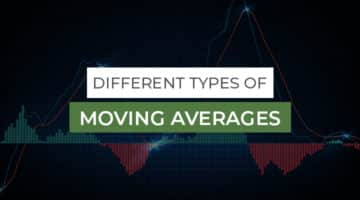
Different Types of Moving Averages
[top_three_brokers] Moving averages can be defined to smooth out price fluctuations to help you distinguish between typical market…
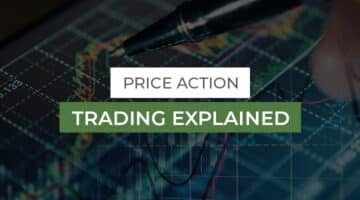
Price Action Trading Explained
[top_three_brokers] In the fast-paced world of forex, price action is the foundation stone for technical analysis. Many…

Pending Orders vs Market Orders
[top_three_brokers] An order is an offer sent through your trading platform to open or close…

What is Leverage in Forex?
Have you opened a new trading account and want to understand Leverage in Foreign exchange?…

Forex Continuation Patterns
[top_three_brokers] The trading world is all about anticipating what's going to happen. Then, based on…

Japanese Candlesticks Explained
[top_three_brokers] The traders use the Japanese Candlesticks to construct charts and analyse the price movement…
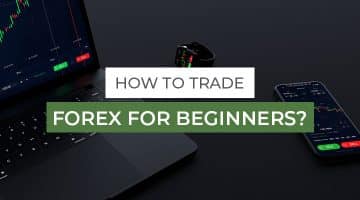
How to Trade Forex for Beginners?
[top_three_brokers] If you are not familiar with forex trading and want an opportunity to make…
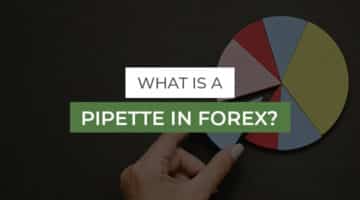
What is a Pipette in Forex?
[top_three_brokers] When we get into a conversation about Forex trading, you will come across different…
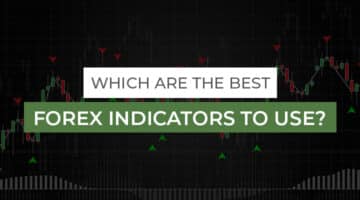
Which are the Best Forex Indicators to Use?
[top_three_brokers] If you are new to forex trading, technical analysis can be like solving a…


